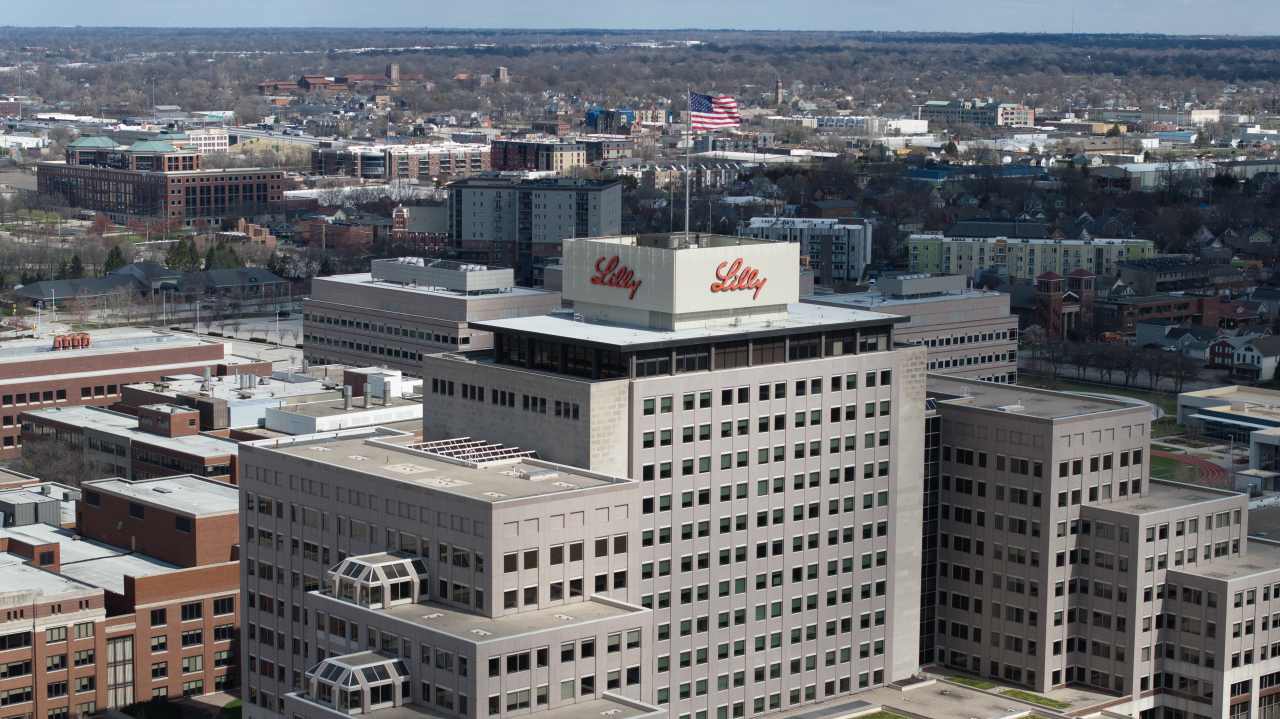Eli Lilly's Weight Loss Pill Falls Short of Investor Hopes as Obesity Market Dips

Market Volatility in the Obesity Drug Sector
Investors are once again reevaluating the future of the obesity drug market as Eli Lilly's weight loss pill fails to meet expectations. The company's stock dropped significantly, reflecting concerns about its performance compared to rival Novo Nordisk. This development has caused a shift in the dynamics of the weight loss drug sector, which had previously seen strong growth and increased market values for both companies.
Lilly’s shares experienced a sharp decline of 13.5% early Thursday, while Novo Nordisk's American depositary receipts rose by 7.5%. The weight loss trade, which gained attention from investors since late 2022, has been experiencing fluctuations recently. On Thursday, the market was once again in motion, with the gap between Lilly and Novo widening since summer 2024.
Lilly's Dominance and New Challenges
Lilly has taken a commanding lead in the branded weight loss drug market in the U.S., while Novo has struggled with sales of its Wegovy drug, which have not met expectations. This led to a significant drop in Novo's share price following a major guidance cut in late July. Despite this, Lilly's recent financial results suggest continued dominance in the sector.
The second-quarter financial results released by Lilly showed that sales of Zepbound and Mounjaro exceeded expectations. The company also raised its full-year guidance, indicating confidence in its performance. However, new data on Lilly's weight loss pill, orforglipron, has raised questions about its potential to maintain this leadership position.
Pipeline Performance and Investor Concerns
Lilly's pipeline, which includes orforglipron and retatrutide, was initially viewed as a key advantage over Novo. However, the latest data suggests that Lilly's pipeline may be weaker than previously thought, while those of Novo and other biotech firms like Viking Therapeutics and Structure Therapeutics appear more promising.
Viking Therapeutics saw its shares rise by 6.4%, and Structure Therapeutics increased by 2.2% on Thursday. The Phase 3 trial results for orforglipron revealed that patients on the highest dose lost an average of 12.4% of their weight over 72 weeks, compared to 0.9% for those on a placebo. This is significantly lower than the 14.9% weight loss achieved by Wegovy in a similar trial. Additionally, side effects were a concern, with 10.3% of patients discontinuing treatment due to adverse effects, compared to 2.6% in the placebo group.
Strategic Moves and Market Reactions
Novo Nordisk seized the opportunity to highlight its own advancements. The company's new CEO, Mike Doustdar, emphasized that the FDA is currently reviewing the application for a pill version of Wegovy, which has shown stronger results in clinical trials. He stated that the pill version could achieve an average 16.6% reduction in body weight, and the company is focused on ensuring availability without supply constraints.
Lilly, on the other hand, attempted to present the orforglipron data positively. Kenneth Custer, the company's president of cardiometabolic health, highlighted the benefits of the drug, including weight loss and improvements in biomarkers such as blood pressure and glucose levels. Despite these claims, analysts remain skeptical.
Financial Performance and Analyst Outlook
Despite the challenges with orforglipron, Lilly's overall financial performance appeared strong. Adjusted earnings per share (EPS) reached $6.31, surpassing expectations of $5.60. Sales for the quarter totaled $15.6 billion, exceeding estimates of $14.7 billion. Zepbound sales were $3.4 billion, and Mounjaro sales reached $5.2 billion, both beating estimates.
Lilly raised its full-year sales guidance, projecting between $60 billion and $62 billion, up from its previous estimate of $58 billion to $61 billion. Non-GAAP earnings are expected to range between $21.75 and $23, compared to the prior estimate of $20.78 to $22.28. However, these positive results did not fully reassure analysts, leading some to downgrade the stock.
Broader Market and Political Context
The volatility in the obesity drug market comes amid broader challenges for the pharmaceutical industry. The political environment has become increasingly difficult for big pharma, with President Donald Trump sending letters to executives, urging them to cut drug prices in the U.S. or face potential consequences. This adds another layer of uncertainty for companies navigating the evolving landscape of the weight loss drug market.
Post a Comment for "Eli Lilly's Weight Loss Pill Falls Short of Investor Hopes as Obesity Market Dips"
Post a Comment